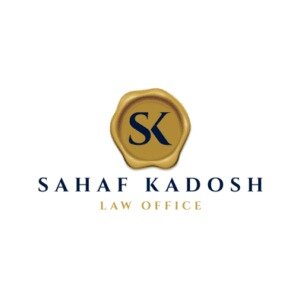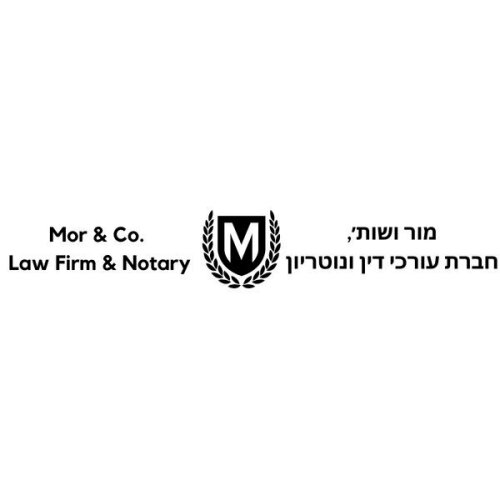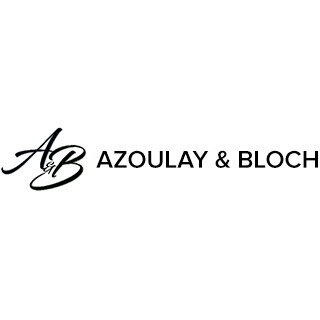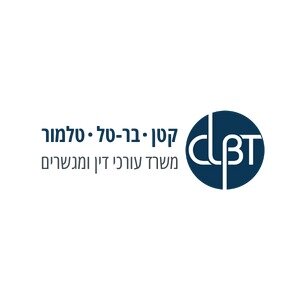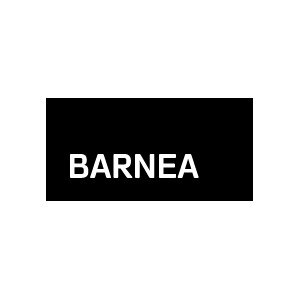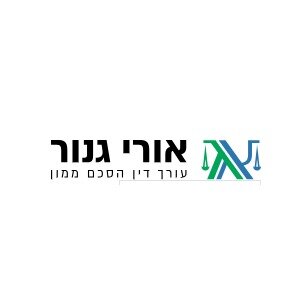Best Renewable & Alternative Energy Lawyers in Israel
Share your needs with us, get contacted by law firms.
Free. Takes 2 min.
Or refine your search by selecting a city:
List of the best lawyers in Israel
About Renewable & Alternative Energy Law in Israel
Israel is known for its innovation in the field of clean energy and has made significant progress in the development and implementation of renewable and alternative energy sources. Energy law in Israel focuses on regulating the production, distribution, and consumption of energy from sources such as solar, wind, and bioenergy, aiming to reduce reliance on fossil fuels and foster energy independence. The Israeli government has set ambitious goals, such as reaching a significant percentage of electricity generation from renewables by 2030. This legal landscape includes incentives for investment in green energy and various regulations for project development, making Israeli renewable and alternative energy law a complex and rapidly evolving field.
Why You May Need a Lawyer
Legal assistance in renewable and alternative energy matters can be crucial for several reasons. You may need a lawyer if you are:
- Developing or investing in solar, wind, or other renewable energy projects and need help with permits or compliance
- Negotiating or drafting contracts for renewable energy technologies or power purchase agreements
- Facing land use or zoning issues related to the construction of renewable energy facilities
- Applying for government incentives, subsidies, or tenders for renewable energy projects
- Dealing with regulatory changes or compliance with evolving Israeli energy laws
- Protecting intellectual property rights relating to renewable energy technology
- Resolving disputes related to energy generation, distribution, or warranty of equipment
Professional legal support ensures that your projects comply with local laws, minimize risks, and maximize opportunities in the competitive energy sector.
Local Laws Overview
In Israel, several key laws and regulations govern renewable and alternative energy:
- Electricity Sector Law - This law establishes the framework for the generation, transmission, distribution, and supply of electricity in Israel. It enables private sector participation and governs licensing requirements.
- Land Regulations - Laws relating to the allocation and use of land for renewable energy projects, especially on public or agricultural land, are strictly regulated and require coordination with governmental authorities.
- Environmental Protection Laws - These set standards to minimize environmental impacts from projects, including impact assessments, emission limits, and waste management requirements.
- Incentives and Feed-in Tariffs - Israel offers financial incentives, including grants, tax benefits, and feed-in tariffs for renewable energy producers. These are subject to periodic revision and specific eligibility criteria.
- Solar Roof and Net Metering Regulations - Specific rules for small-scale producers who want to install solar panels on residential, commercial, or industrial rooftops with options for feeding excess electricity back to the grid.
Understanding these laws is crucial for successful project development and ongoing operation in the renewable energy sector.
Frequently Asked Questions
What types of renewable energy are most commonly developed in Israel?
Solar energy is the most common, followed by wind and bioenergy. Israel’s climate and geography are well suited for solar projects.
Can foreign investors participate in Israeli renewable energy projects?
Yes, foreign investors can participate under certain conditions, but must adhere to local regulations, including land use and corporate ownership restrictions in sensitive areas.
What kinds of permits are required to build a solar or wind power plant?
Multiple permits are needed, including approval from the Israel Electricity Authority, municipal building permits, environmental assessments, and coordination with other relevant authorities.
How are feed-in tariffs determined for renewable energy?
Feed-in tariffs are set periodically by the Electricity Authority and depend on the type of renewable energy, project size, and grid capacity. They may change over time based on policy aims and market developments.
Are there government grants or incentives for homeowners who install solar panels?
Yes, there are incentives such as grants, tax credits, and net metering arrangements for private individuals and businesses who install solar energy systems, subject to eligibility and program availability.
What are the environmental considerations for starting a renewable energy project?
Projects must comply with environmental regulations, including conducting impact assessments and adhering to restrictions meant to protect wildlife, water sources, and sensitive ecosystems.
Is it possible to sell excess electricity generated from a small solar system back to the grid?
Yes, under net metering regulations, homeowners and businesses can sell excess electricity generated by their solar panels to the national grid, subject to technical and regulatory requirements.
What role does the Electricity Authority play in renewable energy projects?
The Electricity Authority oversees licensing, grid connection, tariffs, and regulatory compliance for all electricity producers, including those in the renewable energy sector.
Are there special requirements for renewable energy projects on agricultural land?
Yes, projects on agricultural land are subject to specific land use regulations and may require additional permits or governmental approvals to ensure they do not conflict with agricultural activities.
How can legal disputes in renewable energy projects be resolved?
Disputes can often be resolved through negotiation or mediation, but some may require litigation in Israeli courts or arbitration, depending on the terms of relevant contracts and the nature of the dispute.
Additional Resources
If you are looking for more information or support related to renewable and alternative energy law in Israel, consider reaching out to the following:
- Israel Ministry of Energy - Main governmental body setting energy policy and regulation
- Israel Electricity Authority - Supervises electricity market, including renewable energy licensing and tariffs
- Ministry of Environmental Protection - Oversees environmental assessments and impacts of projects
- Israel Innovation Authority - Supports technological innovation and funding for clean energy startups
- Private sector organizations and trade associations focused on renewable energy
Next Steps
If you are considering starting a renewable or alternative energy project, investing in the energy sector, or are facing legal questions related to compliance or regulation, it is advisable to consult with a qualified lawyer who has expertise in Israeli energy law.
Begin by gathering all relevant documents and project plans, and prepare a list of questions about your specific situation. Schedule a consultation with a legal expert who can review your case, advise you on regulatory requirements, and guide you through the necessary steps to ensure compliance and success in your renewable energy venture.
Staying proactive and informed will help you navigate legal complexities, access available incentives, and avoid potential pitfalls in this rapidly growing field.
Lawzana helps you find the best lawyers and law firms in Israel through a curated and pre-screened list of qualified legal professionals. Our platform offers rankings and detailed profiles of attorneys and law firms, allowing you to compare based on practice areas, including Renewable & Alternative Energy, experience, and client feedback.
Each profile includes a description of the firm's areas of practice, client reviews, team members and partners, year of establishment, spoken languages, office locations, contact information, social media presence, and any published articles or resources. Most firms on our platform speak English and are experienced in both local and international legal matters.
Get a quote from top-rated law firms in Israel — quickly, securely, and without unnecessary hassle.
Disclaimer:
The information provided on this page is for general informational purposes only and does not constitute legal advice. While we strive to ensure the accuracy and relevance of the content, legal information may change over time, and interpretations of the law can vary. You should always consult with a qualified legal professional for advice specific to your situation.
We disclaim all liability for actions taken or not taken based on the content of this page. If you believe any information is incorrect or outdated, please contact us, and we will review and update it where appropriate.
Browse renewable & alternative energy law firms by city in Israel
Refine your search by selecting a city.



